Volkswagen Faces First Mammoth Diesel Lawsuit On Home Turf
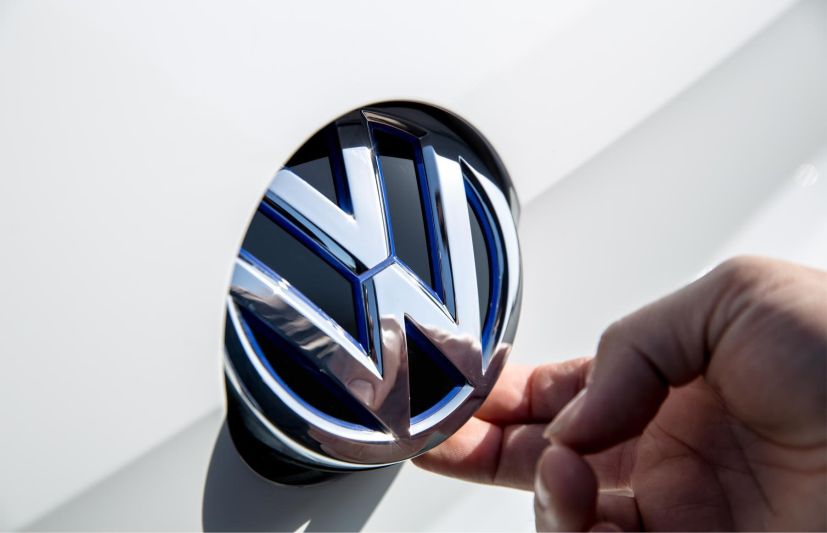
A case pitting hundreds of thousands of owners of manipulated diesel cars demanding compensation opened against German car behemoth Volkswagen Monday, four years after the country''s largest post-war industrial scandal erupted.
Around 450,000 people have joined a first-of-its-kind grouped proceeding, introduced by lawmakers after the "dieselgate" emissions cheating scandal broke in 2015.
The first hearing in what is likely to be a grinding, years-long trial began at 10 am (0800 GMT) in Brunswick, around 30 kilometres (19 miles) from VW headquarters in the northern city of Wolfsburg.
The second is planned for November 18.
Consumer rights group VZBV, representing the plaintiffs, says the German carmaker deliberately harmed buyers by installing motor control software that allowed vehicles to pollute far more on the road than under lab conditions.
"I would like Volkswagen to reimburse the purchase price" said Andreas Sarcletti, a customer who had made the trip from nearby Hanover, "but I''m worried the trial is going to last a very long time."
Uwe Reinicke, who bought a manipulated vehicle in 2011, said "I don''t think it''s right, the way Volkswagen treated us." "VW ought to finally, properly admit that they lied," he added.
The trial is Germany''s largest so far in the tentacular diesel scandal, which last week saw VW chief executive Herbert Diess charged with market manipulation over his role.
"Several regional tribunals have already found against Volkswagen" and granted plaintiffs compensation, judge Michael Neef noted as the proceedings opened.
Alongside the grouped proceeding, 61,000 individual lawsuits have been filed in Germany, but Brunswick may not follow those earlier rulings.
Of the around 50 questions about the case judges must decide on, whether Volkswagen "caused harm" by acting "dishonestly" will be "one of the central, difficult questions," Neef added.
"We''re confident of our chances, since Volkswagen committed fraud," VZBV lawyer Ralph Sauer told AFP ahead of the hearing.
VW lawyer Martine de Lind van Wijngaarden countered that there was "no harm and no basis to this claim" because "hundreds of thousands of cars are used" on the roads without problem.
Judges said that even if they find there was harm, the amount diesel owners receive in compensation would be based on the present-day market value -- not the original purchase price.
Every owner registered in the trial will have to claim individually, even if the plaintiffs were to win the case.
VW thinks a final judgement could arrive in 2023 at the earliest, if the case is appealed all the way to the Federal Court of Justice.
Individual proceedings could then take at least another year -- in the court of first instance.
By then, the cars'' market value will have further eroded, making a buyback cheaper for the firm.
Instead, the judges mentioned the possibility of a settlement, while allowing that such talks "would not be easy" given duplicates and foreign residents on the list of plaintiffs.
The VZBV says it is "open" to an out-of-court settlement but "in that case, VW would have to pay a significant sum after all," Mueller told AFP.
VW for its part finds a mass settlement "hard to imagine".
Since 2015, when Volkswagen admitted to manipulating 11 million vehicles worldwide to fool emissions tests, the scandal has cost the group over 30 billion euros (USD 33 billion) in fines, compensation and legal costs.
Most of that sum -- USD 22 billion -- has gone to the US, while in Germany VW has so far paid just 2.3 billion euros spread across three fines.
Alongside car owners, investors are claiming damages for losses they suffered when the group''s share price plummeted after it came clean.
And earlier this week, chief executive Herbert Diess and supervisory board chief Hans Dieter Poetsch were charged with market manipulation.
Former chief executive Martin Winterkorn, who stepped down over the scandal, has been also charged with fraud.
Away from the legal battlegrounds, "dieselgate" has sped up the fuel''s decline from its status as lower-carbon alternative to petrol, favoured with government subsidies.
In Germany, its market share among new registrations has fallen from 46 to 33 per cent. Car bans are also looming in some city centres because of the level of nitrogen oxides (NOx) emissions.
The diesel scandal is "part of the group''s history" just like the famous Beetle and Golf models, says VW brand chief Ralf Brandstaetter.
"The diesel crisis was a catalyst for our transformation," Brandstaetter told AFP in a recent interview, pointing to VW''s 30 billion euro investment in a new electric range to "regain society''s respect".
Latest News
 car&bike Team | Feb 8, 2026Select Harley-Davidson Motorcycles To Attract Zero Duty Under Upcoming India-US FTA Interim Agreement: ReportPrimary beneficiaries are expected to include models in the 800 to 1600 cc segment2 mins read
car&bike Team | Feb 8, 2026Select Harley-Davidson Motorcycles To Attract Zero Duty Under Upcoming India-US FTA Interim Agreement: ReportPrimary beneficiaries are expected to include models in the 800 to 1600 cc segment2 mins read Jaiveer Mehra | Feb 8, 2026Tata Punch EV Facelift Revealed Ahead Of LaunchSole image of the updated EV previews some of the design updates ahead of its launch on February 20.1 min read
Jaiveer Mehra | Feb 8, 2026Tata Punch EV Facelift Revealed Ahead Of LaunchSole image of the updated EV previews some of the design updates ahead of its launch on February 20.1 min read Jafar Rizvi | Feb 7, 2026Nissan Gravite Interior Spotted Ahead Of February 17 DebutThe Gravite’s interior appears to carry over the familiar layout from the pre-facelift Renault Triber, with only minor updates expected.2 mins read
Jafar Rizvi | Feb 7, 2026Nissan Gravite Interior Spotted Ahead Of February 17 DebutThe Gravite’s interior appears to carry over the familiar layout from the pre-facelift Renault Triber, with only minor updates expected.2 mins read car&bike Team | Feb 7, 2026Jawa 730 Twin UnveiledJawa Moto has introduced the 730 Twin, the fourth model in its lineup to be based on the 750 platform.2 mins read
car&bike Team | Feb 7, 2026Jawa 730 Twin UnveiledJawa Moto has introduced the 730 Twin, the fourth model in its lineup to be based on the 750 platform.2 mins read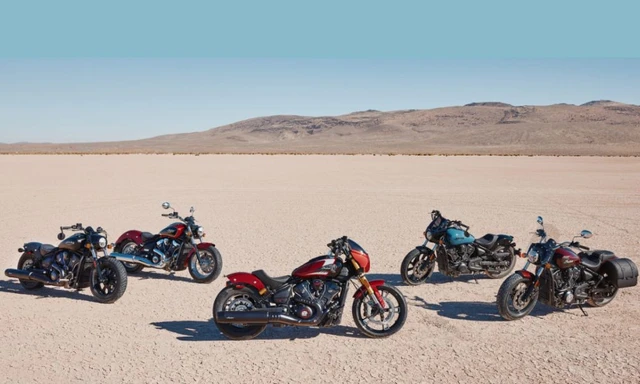 car&bike Team | Feb 6, 2026Indian Motorcycle Parts Ways With PolarisAs America’s first motorcycle brand prepares to celebrate its 125th anniversary, Indian Motorcycle has parted ways with former parent Polaris to become an independent company.1 min read
car&bike Team | Feb 6, 2026Indian Motorcycle Parts Ways With PolarisAs America’s first motorcycle brand prepares to celebrate its 125th anniversary, Indian Motorcycle has parted ways with former parent Polaris to become an independent company.1 min read car&bike Team | Feb 6, 2026BMW F 450 GS Based Sportbike Spotted On TestThe upcoming supersport machine is expected share the same parallel-twin engine with the upcoming BMW F 450 GS.1 min read
car&bike Team | Feb 6, 2026BMW F 450 GS Based Sportbike Spotted On TestThe upcoming supersport machine is expected share the same parallel-twin engine with the upcoming BMW F 450 GS.1 min read
 Bilal Firfiray | Feb 4, 2026Volkswagen Tayron R-Line Review: Sensible Flagship For IndiaVolkswagen has introduced a made-in-India flagship SUV that offers space, comfort, performance, and German driving finesse in a practical three-row package. But is the Tayron R-Line good enough?6 mins read
Bilal Firfiray | Feb 4, 2026Volkswagen Tayron R-Line Review: Sensible Flagship For IndiaVolkswagen has introduced a made-in-India flagship SUV that offers space, comfort, performance, and German driving finesse in a practical three-row package. But is the Tayron R-Line good enough?6 mins read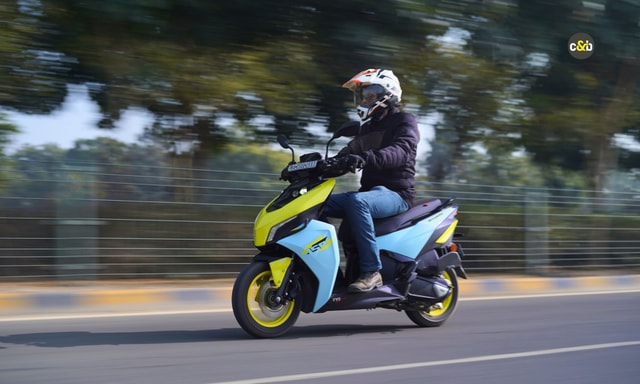 Preetam Bora | Feb 2, 2026TVS NTorq 150 Road Test Review: Bigger, Better & More Efficient!We test the new TVS NTorq 150 out in the real world to get a sense of what it offers in terms of performance, dynamics and fuel economy.7 mins read
Preetam Bora | Feb 2, 2026TVS NTorq 150 Road Test Review: Bigger, Better & More Efficient!We test the new TVS NTorq 150 out in the real world to get a sense of what it offers in terms of performance, dynamics and fuel economy.7 mins read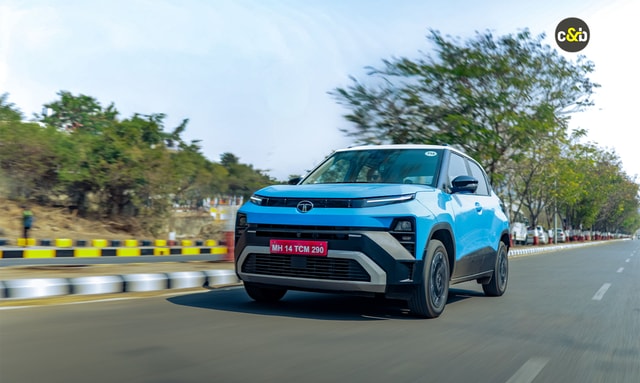 Bilal Firfiray | Jan 21, 2026Tata Punch Facelift Review: New Turbo Engine; Same Old SoulWith the update, the Tata Punch facelift retains its character of being a healthy runabout, which is perfect for Indian roads. But have these changes made it any better?7 mins read
Bilal Firfiray | Jan 21, 2026Tata Punch Facelift Review: New Turbo Engine; Same Old SoulWith the update, the Tata Punch facelift retains its character of being a healthy runabout, which is perfect for Indian roads. But have these changes made it any better?7 mins read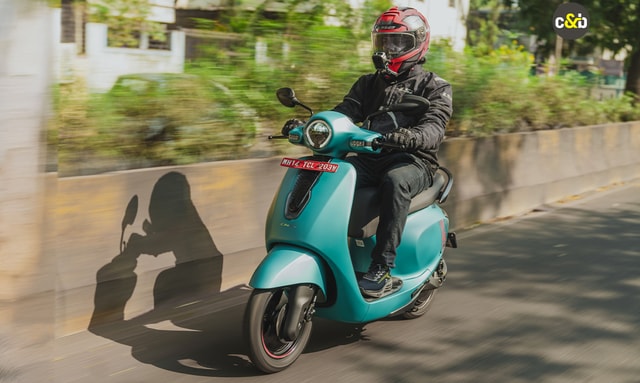 Amaan Ahmed | Jan 17, 2026Bajaj Chetak C25 First Ride Review: Basic, Likeable E-Scooter For First-Time RidersThe Chetak C25, in quite a few ways, is poles apart from the larger and more powerful 30 and 35 Series models, but in its mannerisms, it is very much a Chetak.8 mins read
Amaan Ahmed | Jan 17, 2026Bajaj Chetak C25 First Ride Review: Basic, Likeable E-Scooter For First-Time RidersThe Chetak C25, in quite a few ways, is poles apart from the larger and more powerful 30 and 35 Series models, but in its mannerisms, it is very much a Chetak.8 mins read Bilal Firfiray | Jan 9, 2026Toyota Urban Cruiser Hyryder: 10,000 km Long-Term ReviewAfter spending over three months and 10,000 km with the Toyota Urban Cruiser Hyryder Hybrid, we were impressed by its real-world mileage, seamless hybrid, practical comfort, and Toyota reliability. Is it the best C-SUV then?5 mins read
Bilal Firfiray | Jan 9, 2026Toyota Urban Cruiser Hyryder: 10,000 km Long-Term ReviewAfter spending over three months and 10,000 km with the Toyota Urban Cruiser Hyryder Hybrid, we were impressed by its real-world mileage, seamless hybrid, practical comfort, and Toyota reliability. Is it the best C-SUV then?5 mins read
































































































































